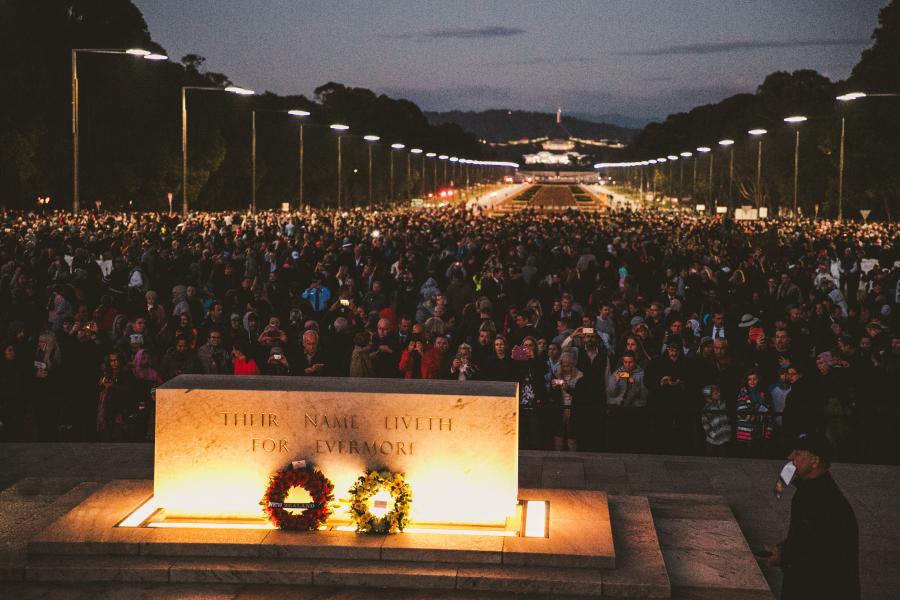Understanding ANZAC Day: A Guide for Parents
Hey there, awesome parents! Ever found yourself scratching your head, trying to explain ANZAC Day to your curious little ones? Worry no more! Let’s embark on a heart-warming journey to understand what ANZAC Day is and why it holds such a special place in the hearts of many. It’s a story of bravery, camaraderie, and respect—and it’s an essential part of our history. So, grab a comfy seat and let’s dive in!
What is ANZAC Day?
ANZAC Day, celebrated on April 25th each year, is one of the most significant national occasions in Australia and New Zealand. The acronym ANZAC stands for Australian and New Zealand Army Corps, soldiers who are often referred to as ANZACs. This special day honors the memory of all Australians and New Zealanders who served and died in all wars, conflicts, and peacekeeping operations. It’s a day that transcends time, connecting past and present in a solemn promise: We will remember them.
The Origin Story of ANZAC Day
Our story begins on the shores of Gallipoli, Turkey, during World War I. On the morning of April 25, 1915, the ANZAC forces landed on Gallipoli as part of a larger campaign to capture the peninsula and open the way to the Black Sea for the allied navies. The objective was clear, but the battle was fraught with difficulty. These brave troops fought with honor and courage, forging a legacy that would define the ANZAC spirit.
While the Gallipoli campaign failed in its military objectives, the actions of the ANZACs left a lasting impression back home. Their qualities of endurance, mateship, and sacrifice became integral to the identity of both nations. ANZAC Day, therefore, emerged not just as a reminder of loss, but as a commemoration of the virtues that we hold dear.
Why Do We Celebrate ANZAC Day?
ANZAC Day is more than just a historical date—it’s a day of national unity where we pause to reflect on the courage and sacrifice of those who bore the hardship of war. Every year, ceremonies take place in both countries, as well as at Gallipoli and other locations around the world where ANZACs have served.
- Dawn Services: These solemn and reflective services are often held at war memorials around the country, signifying the time of the original Gallipoli landing. Many attend to pay their respects in the quiet moments of the dawn, remembering those who have fallen.
- ANZAC Day Parades: Following the Dawn Services, parades are held in major cities and towns. Veterans, along with military personnel, march to honor their colleagues and the ANZAC legacy.
- Playing of “The Last Post”: A bugle call traditionally played at military funerals, this poignant melody is a key part of ANZAC Day ceremonies, marking a moment of reflection for the sacrifices made.
- The Ode of Remembrance: Recited during services, these lines from Laurence Binyon’s poem “For the Fallen” capture the reverence felt on ANZAC Day: “At the going down of the sun and in the morning, we will remember them.”
Parents, explaining ANZAC Day to your children is an invaluable opportunity to instill an appreciation for the past and the freedoms we enjoy today. It’s a chance for us to come together and imbue in our young ones the principles of gratitude, respect, and national pride.
From special ANZAC biscuits baked to share at school, to wearing a sprig of rosemary for remembrance, or even attending a local service, involving kids in ANZAC Day traditions can be a powerful part of their upbringing. So, as we continue this guide, we’ll delve deeper into how to share this poignant day with your family in a way that’s both respectful and meaningful. Let’s make sure that the spirit and sacrifices of the ANZACs are never forgotten, but passed down through generations to come.
By commemorating ANZAC Day with our families, we not only honor those who have given their all for our countries but also ensure that the lessons of history and the essence of courage, mate-ship, and resilience are conveyed to the heart of our community—our children. Get ready to explore more about the various traditions, activities, and educational resources available to help you and your little ones connect with this significant day.
To venture further into the heart of ANZAC Day is to explore the depth of gratitude and remembrance. Let’s continue onward, together, immersing ourselves in the traditions, stories, and values that this day reveres…

Five Key Things Parents Should Know in Preparing for ANZAC Day
As parents, part of our role is to guide our children through the nuances of our history and heritage. When it comes to ANZAC Day, there are several key aspects to consider to ensure a meaningful experience for the whole family:
1. Understanding the Significance
First and foremost, take some time to fully understand the significance of ANZAC Day yourself. This will allow you to share the history and importance of this day with your children accurately and thoughtfully. Dive into the stories of heroism and sacrifice of the ANZACs and discuss how their legacy continues to shape our nations.
2. Engaging in Respectful Traditions
Start your ANZAC Day by participating in respectful traditions, such as attending local dawn service. Let your kids know why it’s important to maintain silence during “The Last Post” and to reflect during the minute of silence following it. Explain the symbolism of the rosemary and the red poppy, both of which are associated with remembrance.
3. Creating Educational Moments
ANZAC Day presents an excellent opportunity for educational moments. Consider reading stories or watching age-appropriate documentaries about the ANZACs with your children. Museums often have special exhibitions during April, which provide a hands-on learning experience for the whole family.
4. Baking ANZAC Biscuits
Bake ANZAC biscuits together with your children. This can be a fun and interactive way to discuss history—how the biscuits were originally made by wives and sent to soldiers abroad because they kept well during naval transportation. Plus, it creates a tangible connection to the past.
5. Teaching the Value of Remembrance
Finally, instill in your children the importance of remembrance. Ensure they know that ANZAC Day isn’t just about a day off school or work; it’s about paying tribute to those who fought for the freedoms we enjoy today. Encourage them to think about what peace means to them and the role they can play in maintaining it.
RELATED READING:
- The Origin of ANZAC Day: A Historical Perspective
- ANZAC Day Traditions for Families: How to Get Involved
- Age-appropriate ANZAC Stories for Children
Let’s remember, ANZAC Day is a time for us to come together in a spirit of reflection and gratitude. By educating ourselves and our children on the ANZAC legacy, we continue to honor those who have served and reinforce the principles for which they stood. Let’s bring this significant day to life for our young ones, ensuring the ANZAC spirit endures for generations to come.
Are you excited to introduce your family to this significant cultural tradition in a way that’s educational, respectful, and meaningful? With these insights, you’re now equipped to create a memorable ANZAC Day that honors the past while educating the future. Lest we forget, the bravery and the spirit of those who have paved the way for our today—isn’t just history, it’s a guide for how we can approach tomorrow.
See more great Things to Do with Kids in New Zealand here. For more information see here
Disclaimer
The articles available via our website provide general information only and we strongly urge readers to exercise caution and conduct their own thorough research and fact-checking. The information presented should not be taken as absolute truth, and, to the maximum extent permitted by law, we will not be held liable for any inaccuracies or errors in the content. It is essential for individuals to independently verify and validate the information before making any decisions or taking any actions based on the articles.




